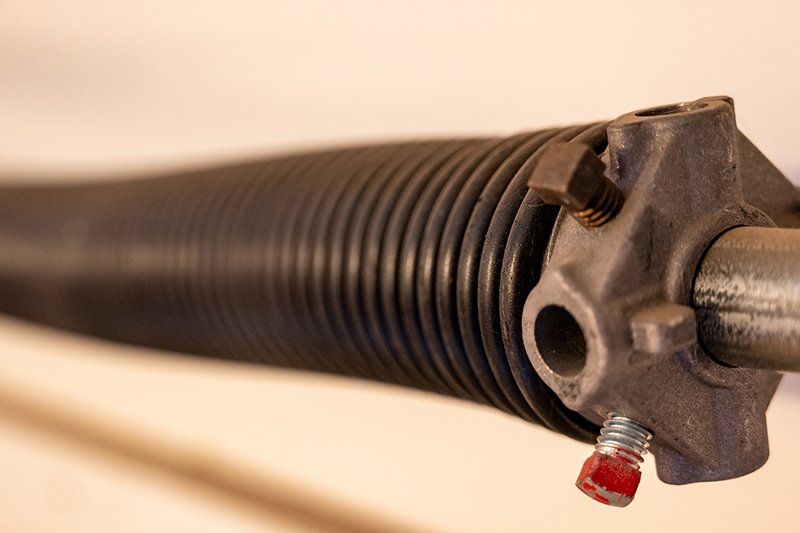When you consider the heavy lifting garage door springs have to do daily, they’re pretty incredible. They’re not the most exciting thing (you probably won’t show them off to visitors). But they are essential to your garage door’s smooth and efficient operation. We’ve put together a guide on why they’re important, types of springs, and spring repair. Read on!
Why are garage door springs important?
Garage door springs are integral to your door working properly. In fact, a broken spring can stop the entire operation. These small but mighty parts “store mechanical energy, which makes them tighten.” Their main job is to make sure the door opens and closes smoothly. So, if they break, the garage door could fall suddenly. You simply can’t have a garage door without the springs.
Main types of springs
While it may not be a dinner-worthy conversation, there are different types of garage door springs that impact the way your door operates. The most common, torsion and extension, can be further broken down into subcategories.
Torsion springs
Torsion springs differ from regular springs because they store energy with a rotating motion and are “made of a denser material.” They’re typically mounted horizontally on either side of the garage door opening and unwind and transfer energy as the door opens. They also last between five and seven years and 10,000 cycles. Subsets of torsion springs include standard torsion springs, early set torsion springs, steel rolling door torsion springs, and torque master torsion springs.
Extension springs
Extension springs work “because they store energy by extending or stretching.” When closed, the door adds tension to the springs and each of the springs provides this tension independently. Extension springs vary from their types of ends. These include open looped springs, double looped springs, and clipped extension springs. All of which vary in their replacement ease and operational durability.
Garage door spring repair
If we haven’t made it clear already, damaged springs can be dangerous. Which is why we recommend never trying to repair them yourself. Instead, call our trusted team of repair professionals and we’ll get your garage back in working order.
Reasons for breakage
The top reasons springs break are wear and tear, rust, and improper maintenance. While you can’t control how often you need to use your garage door, you can prevent the latter two problems. To combat rust, you can “spray down the spring with a silicone-based lubricant three or four times a year.” Make sure you also check your garage door balance yearly. And have a professional service your door before major problems arise.
Call on the professionals
Whether you need a new garage door or just some TLC for an existing one, our team is happy to help. We can get you equipped with the most trustworthy garage door springs so your door operates smoothly for years to come.

